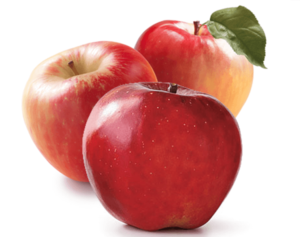Central Washington apple growers received in-field instructions on growing Cosmic Crisp, heralded as the state apple variety of the future. The first commercial orchards will be planted in 2017 with the first fruit reaching markets in 2020.
ROCK ISLAND, Washington – Techniques to minimize “blind wood” are the most important for orchardists to know in growing Washington’s new apple, the Cosmic Crisp, a leading expert says.
About 50 growers attended a morning talk at the WSU Roza Research Orchard north of Prosser in the morning and another 50 attended the same presentation in the afternoon 120 miles to the north at the WSU Sunrise Research Orchard south of Rock Island.
Musacchi, Tom Auvil, research horticulturalist at the Washington Tree Fruit Research Commission, and Kate Evans, WSU apple breeder, all based in Wenatchee, spoke at both events. Evans said they hope to offer another field day in June to demonstrate mechanical pruning of the new variety.
The Cosmic Crisp, also known by its breeding name WA 38, is a much anticipated release of the WSU apple breeding program, with 48 growers selected by drawing to plant the first 600,000 trees in the spring of 2017. Enough trees will be propagated by nurseries that drawing won’t be necessary for the following years.
Growers have ordered more than 1 million trees for 2018 and more for 2019.

Cosmic Crisp with its parents Enterprise (back left) and Honeycrisp (back right)
The apple was bred from Enterprise and Honeycrisp varieties in 1997 and has a sweet, tangy flavor that ranks high in taste, texture and beauty and has many qualities of the popular Honeyscrisp with fewer horticultural challenges, Evans has said.
Cosmic Crisp is a type four variety, Musacchi said, meaning it has long branches and a lot of blind wood. The variety also responds quickly to nitrogen and too much causes excessive growth, he said
Cosmic Crisp was planted in both research orchards in 2013 on two different rootstocks and using the European V-trellis, spindle and biaxial types of tree architecture.
V-trellis promotes better distribution of flower clusters but isn’t suitable for mechanical pruning, Musacchi said. He said he prefers biaxial because two stems instead of one divides vigor, holding it down, and rows of two stems in the same plane form a fruiting wall, increasing light to fruit.
Lynnell Brandt, president of Proprietary Variety Management in Yakima that is coordinating the commercialization of Cosmic Crisp for WSU, attended both events.
Angel Farias, manager of a Valley Fruit Co. orchard near Royal City, said the Wapato-based company plans to plant WA 38 next spring at the orchard he manages and sent him to the field day to learn about it.
“I came to learn ways to grow it right,” he said. “You don’t want to start off on the wrong foot.”
Article by Dan Wheat, Capital Press







